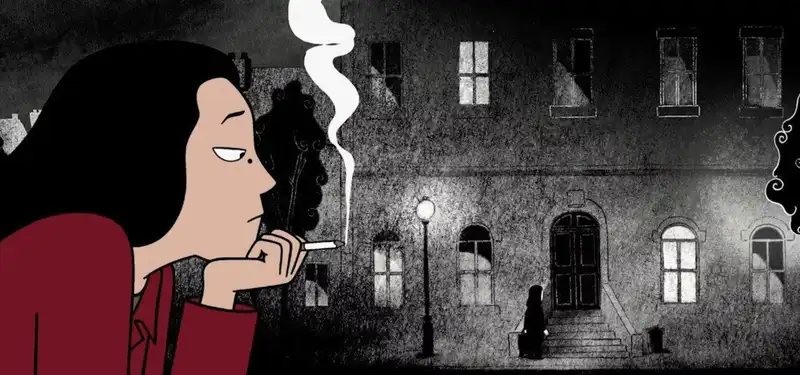Feb 6, 2024
New video essay explains how French projects are financed and why the country's system is filmmaker-friendly
Youtuber Evan Puschak, better known as Nerdwriter, is one of our favorite sources for clear, concise instructional videos about the film and television industry worldwide.
In his latest post, he provides a detailed breakdown of the French subsidy and grant system that funds animated and live-action film production, as well as the organization that administers it, the Centre National de Cinematographie et de la Cinematographie (CNC). If you have ever seen a poster of a French film, you may have noticed its initials at the bottom, along with information on producers and distributors.
The CNC is a publicly owned government agency that funds film, television, and digital programming, as well as brick-and-mortar cinemas, film restoration, and educational programs. As Puschak explains, it "represents a radical alternative to the economic model of U.S. film production."
The CNC is a "publicly owned and operated organization,"
and "a major player in the U.S. film industry.In the U.S., the film production scene is almost entirely privately funded. Several states have tax credit programs, but they are designed to favor large corporations and are practically incomparable to the CNC in France.
Puschak answers the two main questions that most foreigners tend to ask about CNCs:
CNCs are funded from three main sources.
Together, these three taxes generated €714 million ($766.1 million) in 2022. The video points out that the French CNC budget was four times the entire budget of the U.S. National Endowment for the Arts ($180 million) that year, despite the fact that France's population is five times that of the U.S. 2022:
Puschak notes that opponents of the program, who are not aware that CNC are quick to criticize the low economic returns on many of the experimental and auteur films funded by the CNC, but he argues that one of the CNC's main goals is to ensure that such types of films are produced.
The organization's goal is clearly articulated in the document shared in the video: "to support independent films that are bold by market standards and cannot find financial balance without public assistance."
To further emphasize this point, Puschak explains that the average investment in 2022 for a first-time director is €480,000 (US$516,000), giving these aspiring artists opportunities that few emerging US-based directors have
. Puschak's video is less than 10 minutes long and is well worth watching if you want to learn more about how the French system is so unique and filmmaker-friendly.




Post your comment